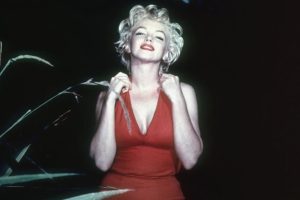Fiddler on the Roof is a study of Eastern European Jewry: it is based on Yiddish writer Sholem Aleichem’s short stories and is set in a Yiddish-speaking village in early twentieth-century Imperial Russia. Yet, in the hit musical, which premiered on Broadway in 1964, Sheldon Harnick’s lyrics only feature a handful of Yiddish words.
Harnick later confessed that the creators downplayed the Jewishness of the story — something they thought might be too sticky; too specific — in order not to put off American audiences. As scriptwriter Joseph Stein said: “These were stories about characters who just happened to be Jewish.”
Now, for those who missed it the first time, a seven-week rerun of Fiddler on the Roof in Yiddish, performed at Manhattan’s New World Stages, sets to correct that. In placing Yiddish front and center, language itself becomes a character. Yiddish creates deep pathos in a well-worn, and sometimes overly kitsch play: adding a muscular musicality, a gruff joy and guttural pain and, above all, an unadulterated, unapologetic Jewishness.
First premiering in 2018 at New York’s Museum of Jewish Heritage, and put on by the National Yiddish Theater Folksbiene, this Fiddler was renewed four times before moving uptown to Stage 42. In 2020, just before a global tour, the pandemic struck.
Much of what made the original production a success is kept for its return, with twenty-one of the original twenty-five-strong cast back on stage. Most of them learnt Yiddish for the show, yet the naturalness with which they navigate the language — speaking and singing with heart and easy, unrehearsed authenticity — is impressive.
It no doubt helps that director Joel Grey, of Cabaret fame, grew up with a Yiddish-speaking grandmother and father (the comedian and musician Mickey Katz). He infuses songs such as ”Shabes Brokhe” (Sabbath Prayer) or ”Lakhayim” (To Life) with new delight; so much so that at times the English subtitles can seem superfluous.
Steven Skybell plays the poor dairyman Tevye, whose three daughters test his religious and moral moorings when they demand the right to choose whom to marry. Rather than present Tevye as a well-meaning buffoon, Skybell is more nuanced with his charge. He radiates, despite humble origins, distinguished charm, and a burning lust for life: this is a man who fizzes with joy, who has fun, who laughs and who loves, deeply. He is also a man who grapples with the pull between tradition and modernity.
Jennifer Babiak adds a dignified down-to-earth solidity as Tevye’s wife Golde and Lisa Fishman brings a wheedling, gossipy drollness to Yente the matchmaker, while also showing her vulnerability as a lonesome widower. Each of Tevye’s strong-willed daughters, meanwhile, are individually sketched and their love matches feel believable — based on respect, affection and shared values — rather than any starry-eyed romance.
Keeping the musical racing along is the juxtaposition between the larger, raucous set pieces and quieter moments. The dream sequence, in which Tevye recounts a fake nightmare to convince Golde that their daughter Tsaytl must, under no circumstances, marry the rich butcher, Leyzer-Volf, walks a thrilling line between farcical and scary. Leyzer-Volf’s vengeful wife Frume-Sore appears as a towering, hair-raising ghost on stilts, while the cast shift around her in masks, and Tevye comically attempts to tone down the “nightmare” by controlling the percussionists on stage.
Poignancy is also there when it is needed. In the duet ”Libst Mikh, Sertse” (Do You Love Me?), Tevye asks Golde if, twenty-five years after their arranged marriage, she loves him. Sung simply on a bench, the song is intimate, sweet and exposing. Tevye is nervous and timid in sharing this simple sentiment and Golde, while surprised by his sudden amorousness, admits she does: love, after all, is about sharing your life, bitter and sweet, with another.
Woven into the action is the threat of pogroms. When Tevye drunkenly celebrates setting up a match for his daughter at the inn, Russian youths join in the merriment. They whirl and spin, maneuvering the confused Jews around them in a display that is both exhilarating and tense: Tevye, and the audience, is never sure if the merrymaking could turn violent. The presence of the lurking constable (Bobby Underwood), meanwhile, represents the banality of evil: the constable is nothing more than a bureaucrat doing someone else’s dirty work — despite protestations that he has no choice.
Enhancing the production are traditional folk and wedding dances, which choreographer Staś Kmieć added to Jerome Robbins’ original sequences, and which give a pulsating energy to Beowulf Boritt’s spare stage.
And yet, despite these celebrations of ritual and ceremony, Fiddler on the Roof is, and was always about, the brilliant, bright march of progress.
In this sense, Fiddler embodies American values. Aleichem’s stories are ambivalent about the move away from tradition: they end with Tevye alone and his daughters dispersed. The musical is not. Progress is viewed as morally enlightened — something Tevye finally realizes when he blesses his daughter Khave’s marriage to an idealistic gentile, telling them “God be with you.”
For me, though, this Fiddler was revelatory. It balanced the conviction that forward is always best; it made me want to dive into the Yiddish of my grandmother’s ancestors. It argued, through language and dance and song, that while leaving our roots gives us much to gain, we also have much to lose.
Fiddler on the Roof in Yiddish runs until January 1 at New World Stages .











